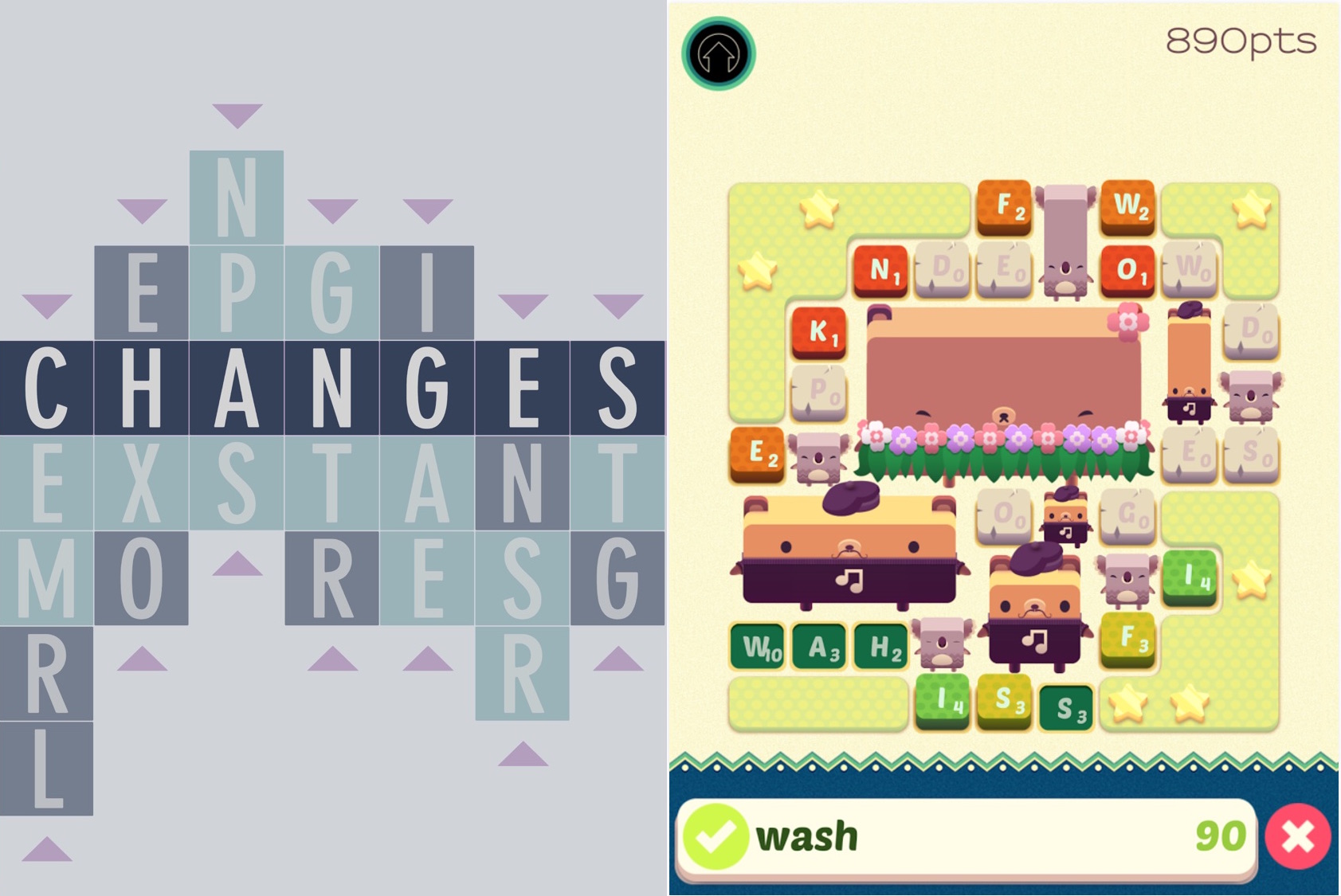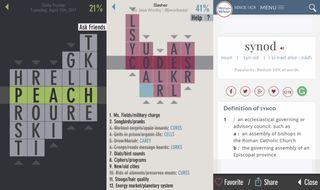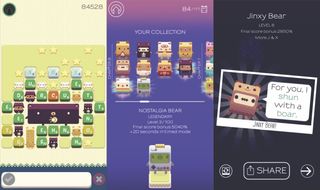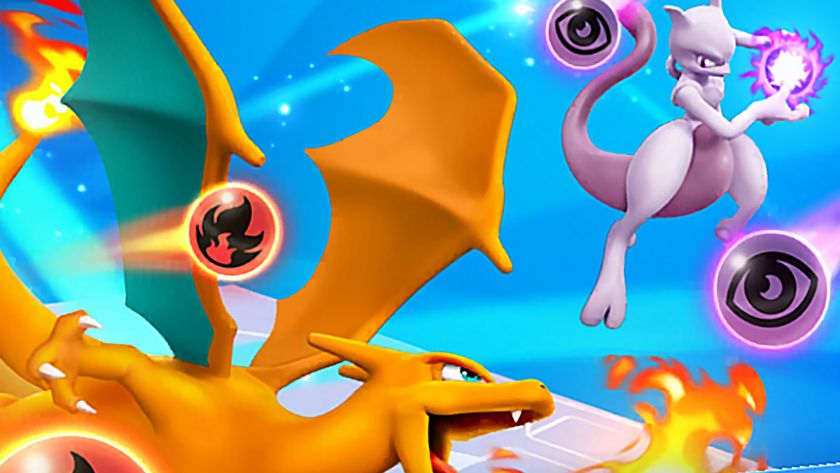How to make word games people will actually play

Poke around in a mobile app store and you will find a whole lot of word games, and most of them will not be very good. Many are just too dang easy. They might be fun for a few mindless minutes of relaxation, but they don’t have enough substance to last. Others make the player feel like an idiot because they haven’t memorized the dictionary. The best word games offer challenge, but also make the player feel smart whether they know a bevvy of 7-letter words or not. It’s a tricky balance to achieve, and only a few word games ever manage to get it right. The first thing they tend to do is forget they’re a word game.
Zach Gage has made a name for himself with modern reinvention of the games you might’ve found printed in a newspaper a few decades ago. His recent puzzle game Typeshift blends crosswords with anagrams. The player is presented with an assortment of letters on sliders. The goal of each puzzle is to find a way to use each letter on screen in a word. For extra challenge, there are Clue puzzles. These give witty phrases that you need to provide answers to with the words composed out of the slider tiles.
The beauty of Typeshift is that even for the Clue puzzles, you don’t have to be Will Shortz to enjoy yourself. The game works because even when you’re challenged, you’re still active. You don’t spend the time feeling powerless, as you might while staring at an empty, unforgiving crossword grid. You’re flipping the sliders back and forth, looking for the right combination of letters to clear away that damn K tile. The experience of the game is less like homework and more like cracking a safe. It’s a process of exploration. It’s empowering. Vast wealth, or at least the puzzle’s completion, is literally at your fingertips if you can only get the lettered tumblers to bend to your will.

The design also keeps players engaged thanks to the element of surprise. While working on the regular puzzle packs, you might just be idly moving the sliders and happen on a word that you didn’t think of or maybe didn’t know. Once you’ve cleared all the letters, you see a screen with all the words that you found. Tap the unfamiliar word and you’ll be taken to the definition from Merriam-Webster’s app. Yes, Merriam-Webster is now a dictionary, a Twitter gold mine, and a video game contributor.
The tie-in presents Typeshift’s educational bent in a very take-it-or-leave-it manner. There’s no requirement to learn new words or to click through to the dictionary entry. But since unfamiliar words usually appear as lucky accidents, that surprise seems to encourage curiosity. And odds are you’d remember a new word that you discovered in the context of Typeshift because the discovery was unexpected.
Typeshift shows how word games can be elegant. It’s is a testament to purity of design and creating player engagement. But that’s not the only way to trick players into doing their spelling homework. It can also happen by piling on the charm, cuteness, and the ever-alluring draw of a high score.
Enter Alphabear. With each turn in a game of this puzzler from Spry Fox, you make a word out of the letters appearing on a grid. Your goal is to get the highest score you can, knowing that letters are worth fewer points each turn and that the bears you picked for that round will help boost your final number. Getting big scores can unlock new bears for your collection or increase the stats for your existing bears.
Sign up to the 12DOVE Newsletter
Weekly digests, tales from the communities you love, and more

Educational gaming isn’t about cramming information into the player’s skull. It’s about creating systems that encourage them to learn, to stretch their minds and seek out a creative solution. This is where Alphabear excels. Rather than asking players to think about the most obscure dictionary entries they can or try to remember that whole “I before E” exception, it asks you to think about the bears you’ve chosen for a puzzle and how to maximize their bonuses. Do you get extra points for making four-letter words? What about for using the letter P with two turns left?
Alphabear sets challenges and game mechanics that have nothing to do with having a million-dollar vocabulary. Since the challenges are low stakes and focused away from actually knowing words, the game is a relaxing experience. You find yourself thinking differently about the words you could make because the game isn’t testing you on your spelling prowess. You have to get creative, and as with Typeshift, sometimes you have to experiment and hope that maybe “paerrot” is an acceptable alternate spelling of “parrot”. (Hint: It isn’t.)
Giving players the right tools and the right incentives are how any game attracts a fanbase. Typeshift and Alphabear are just two examples of how word games can strike the balance of teasing your brain and stoking your ego.

Anna is a freelance writer who has written for the likes of GamesRadar, Ars Technica, Blizzard Watch, and Mashable. She's also created games as part of various game jams. Anna likes games about solving puzzles and/or shooting things. She wishes she could trade zingers with GLaDOS and have beers with Garrus Vakarian in real life.












